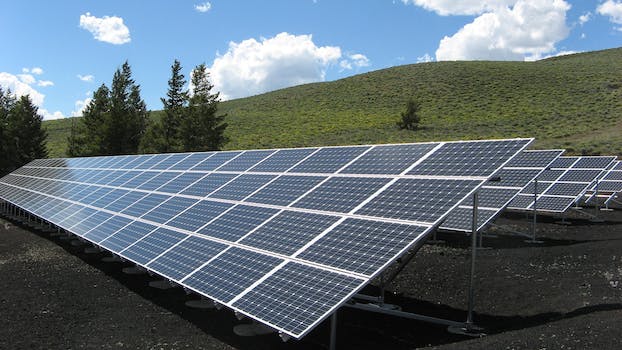Eco-friendly camping is a great way to enjoy the outdoors while minimizing your impact on the environment. From using renewable energy sources to packing out all your trash, there are many ways to make your camping trip more sustainable. In this article, we’ll explore 10 eco-friendly camping options that will help you travel sustainably and protect the planet.
- 1. Introduction
- 1.1. Why sustainable travel matters
- 1.2. What is eco-friendly camping
- 1.3. Benefits of eco-friendly camping
- 2. Eco-friendly camping gear
- 2.1. Tents made from sustainable materials
- 2.2. Eco-friendly sleeping bags and pads
- 2.3. Solar-powered lanterns and chargers
- 2.4. Reusable water bottles and food containers
- 2.5. Biodegradable toiletries
- 3. Eco-friendly camping practices
- 3.1. Leave no trace principles
- 3.2. Use renewable energy sources
- 3.3. Reduce waste through recycling and composting
- 3.4. Support local communities
- 3.5. Choose low-impact activities
- 4. Eco-friendly camping destinations
- 4.1. National and state parks
- 4.2. Eco-lodges and glamping sites
- 4.3. Organic farms and permaculture centers
- 4.4. Community-run campgrounds
- 4.5. Off-the-grid wilderness areas
- 5. Conclusion
1. Introduction
Camping is a popular way to travel and explore the great outdoors, but it can also have a significant impact on the environment. Fortunately, there are many eco-friendly camping options available that allow travelers to enjoy nature while minimizing their carbon footprint. From using solar-powered gear to choosing campsites that prioritize sustainability, there are many ways to make your camping trip more environmentally friendly. In this article, we’ll explore 10 eco-friendly camping options that are perfect for sustainable travel.
1.1. Why sustainable travel matters
Sustainable travel is a way of exploring the world while minimizing the negative impact on the environment and local communities. It involves making conscious choices that prioritize the preservation of natural resources, support local economies, and minimize carbon footprint. As travelers, we have a responsibility to protect the planet we live in and promote sustainable tourism practices. By choosing eco-friendly camping options, we can enjoy the great outdoors while also doing our part in preserving it for future generations.
1.2. What is eco-friendly camping
Eco-friendly camping, also known as sustainable or green camping, is a form of camping that emphasizes responsible use of natural resources and minimizing your impact on the environment. It involves making conscious choices about the gear you use, how you dispose of waste, and the activities you engage in while camping. By practicing eco-friendly camping, you can reduce your carbon footprint, help preserve natural habitats, and contribute to the overall health of our planet.
1.3. Benefits of eco-friendly camping
Eco-friendly camping is a great way to enjoy the outdoors while minimizing your impact on the environment. By choosing sustainable travel options, you can reduce your carbon footprint, preserve natural resources, and support local communities. In addition to being environmentally conscious, eco-friendly camping also has a number of benefits for travelers. From improved health and wellness to enhanced cultural experiences, there are many reasons to consider eco-friendly camping for your next adventure.
2. Eco-friendly camping gear
When it comes to camping, being environmentally conscious is more important than ever. Luckily, there are plenty of eco-friendly camping gear options available that can help reduce your environmental impact while still enjoying the great outdoors. From solar-powered lights and chargers to biodegradable toiletries and reusable water bottles, there are plenty of ways to make your camping trip more sustainable. Consider investing in gear made from sustainable materials like bamboo, recycled plastic, or organic cotton. By making small changes to your camping routine, you can help protect the planet and enjoy all that nature has to offer.
2.1. Tents made from sustainable materials
Tents made from sustainable materials are a great option for eco-friendly camping. These tents are typically made from materials such as bamboo, hemp, or recycled polyester. They are designed to be durable, lightweight, and easy to set up. Many eco-friendly tents also come with features such as built-in ventilation, reflective guylines, and rainflys made from recycled materials. By choosing a tent made from sustainable materials, you can reduce your environmental impact and enjoy a more sustainable camping experience.
2.2. Eco-friendly sleeping bags and pads
Eco-friendly sleeping bags and pads are a must-have for any sustainable camper. These products are made from materials that are biodegradable and do not harm the environment. Some popular eco-friendly materials used in sleeping bags and pads include recycled polyester, organic cotton, and bamboo. Additionally, these products are often designed to be lightweight and compact, making them easy to transport and store. By choosing eco-friendly sleeping bags and pads, campers can enjoy a good night’s sleep while also minimizing their impact on the environment.
2.3. Solar-powered lanterns and chargers
Solar-powered lanterns and chargers are excellent eco-friendly alternatives to traditional camping gear that require batteries or electricity. These lanterns and chargers harness the power of the sun to provide light and charge electronic devices, reducing the need for disposable batteries and electricity from non-renewable sources. Plus, they are portable, easy to use, and require minimal maintenance. Investing in solar-powered lanterns and chargers is not only good for the environment but also a practical choice for sustainable camping.
2.4. Reusable water bottles and food containers
When it comes to eco-friendly camping gear, reusable water bottles and food containers are a must-have. Not only do they help reduce waste and minimize your impact on the environment, but they are also convenient and practical. You can easily refill your water bottle at any water source and store your food in reusable containers instead of using disposable plastic bags or containers. Plus, many reusable water bottles and food containers are made from sustainable materials like stainless steel or bamboo, making them a great choice for environmentally-conscious travelers.
2.5. Biodegradable toiletries
Biodegradable toiletries are an essential item for any eco-friendly camper. These toiletries are made from natural ingredients that break down easily in the environment, reducing the amount of waste that is left behind. Some of the most popular biodegradable toiletries include shampoo, conditioner, soap, and toothpaste. These products are not only better for the environment, but they are also better for your skin and hair. So, if you want to have a more sustainable camping experience, be sure to pack some biodegradable toiletries in your backpack.
3. Eco-friendly camping practices
Eco-friendly camping practices are becoming increasingly popular as travelers look for sustainable ways to enjoy the great outdoors. Here are 10 eco-friendly camping options to consider for your next trip: 1) Use a tent made from sustainable materials, such as hemp or bamboo; 2) Bring reusable water bottles and containers to reduce waste; 3) Pack eco-friendly cleaning products, such as biodegradable soap and detergent; 4) Cook with a camp stove instead of a fire to reduce air pollution; 5) Avoid single-use plastic products, such as utensils and plates; 6) Dispose of waste properly, including human waste and trash; 7) Respect wildlife and their habitats by keeping a safe distance; 8) Use solar-powered or rechargeable batteries for your electronics; 9) Purchase local and organic food to support sustainable agriculture; 10) Leave your campsite better than you found it by picking up any litter or debris.
3.1. Leave no trace principles
When it comes to eco-friendly camping, one important principle to follow is Leave No Trace. This means leaving the campsite in the same condition as it was found, including packing out all trash and leaving natural features undisturbed. The Leave No Trace Center for Outdoor Ethics outlines seven principles for responsible outdoor recreation, including planning ahead, disposing of waste properly, and respecting wildlife. By following these principles, campers can minimize their impact on the environment and ensure that future generations can enjoy the outdoors as well.
3.2. Use renewable energy sources
When it comes to eco-friendly camping practices, using renewable energy sources is a top priority. Opting for solar-powered camping gear, such as lights and chargers, can significantly reduce your environmental impact. Additionally, using a portable solar panel to charge your devices can ensure that you have a reliable power source without relying on non-renewable energy. Another option is to use a solar-powered generator, which can provide clean energy for larger camping equipment like refrigerators and stoves. By using renewable energy sources, you can enjoy a sustainable camping experience while minimizing your carbon footprint.
3.3. Reduce waste through recycling and composting
One of the best ways to reduce waste while camping is through recycling and composting. Bring along separate bins or bags for recyclable materials such as plastic bottles, aluminum cans, and glass jars. Make sure to properly dispose of them at designated recycling centers or take them back home to recycle. Composting is another great option for reducing waste. Instead of throwing away food scraps, collect them in a compost bin to create nutrient-rich soil for your garden or plants. Just be sure to follow proper composting guidelines and avoid adding meat, dairy, or oils to the bin.
3.4. Support local communities
Supporting local communities is an important aspect of eco-friendly camping. When planning your trip, consider staying in locally owned campsites or booking tours with local guides. This not only supports the local economy, but also allows you to have a more authentic travel experience. Additionally, purchasing locally sourced food and products helps reduce the carbon footprint of transportation and supports sustainable agriculture.
3.5. Choose low-impact activities
When planning your next camping trip, consider choosing low-impact activities that have a minimal effect on the environment. This can include hiking, bird watching, and fishing with catch-and-release practices. By opting for these types of activities, you can enjoy the beauty of nature without disrupting the delicate balance of the ecosystem. Additionally, choosing low-impact activities can provide a more peaceful and immersive experience, allowing you to fully appreciate the natural surroundings.
4. Eco-friendly camping destinations
Eco-friendly camping destinations are gaining popularity among travelers who want to enjoy nature without leaving a negative impact on the environment. These destinations promote sustainable travel by encouraging visitors to adopt eco-friendly practices during their stay. From glamping sites to national parks, there are plenty of options for eco-conscious travelers. Here are 10 eco-friendly camping options for sustainable travel:
4.1. National and state parks
National and state parks are great options for eco-friendly camping destinations. These parks are often dedicated to preserving the natural environment and offer opportunities for visitors to learn about conservation efforts. Additionally, many national and state parks have implemented sustainable practices such as recycling programs, energy-efficient facilities, and low-impact camping policies. Some popular options for eco-friendly camping in national and state parks include Yosemite National Park, Acadia National Park, and Joshua Tree National Park. These parks offer a range of camping options from primitive backcountry sites to fully-equipped RV parks, making them accessible to a variety of travelers.
4.2. Eco-lodges and glamping sites
Eco-lodges and glamping sites are becoming increasingly popular options for travelers looking for a sustainable camping experience. These accommodations are often designed with the environment in mind, utilizing renewable energy sources and minimizing waste. Many eco-lodges and glamping sites also offer unique experiences, such as sleeping in treehouses or yurts, providing a one-of-a-kind camping experience while still being environmentally conscious.
4.3. Organic farms and permaculture centers
For travelers who want to prioritize sustainability, eco-friendly camping destinations offer a great way to connect with nature without leaving a big ecological footprint. Organic farms and permaculture centers are particularly attractive options for those looking to learn more about sustainable agriculture and living.
Organic farms offer visitors the opportunity to learn about sustainable farming practices and even participate in the farm work. Many of these farms also offer on-site camping options, allowing visitors to fully immerse themselves in the farm experience. Permaculture centers take this concept a step further, focusing on sustainable and regenerative agriculture practices that work with nature rather than against it. These centers often offer workshops and classes in permaculture design, earth-friendly building techniques, and other sustainable living practices.
In addition to the educational opportunities, camping at organic farms and permaculture centers offers a chance to enjoy fresh, locally grown produce and connect with like-minded travelers who share a commitment to sustainability.
4.4. Community-run campgrounds
Community-run campgrounds offer a unique opportunity for travelers to experience sustainable and eco-friendly camping options. These campgrounds are often managed by local volunteers who are passionate about preserving the natural beauty of the area. Many community-run campgrounds also offer educational programs and activities that promote environmental conservation and sustainability. By choosing to stay at a community-run campground, travelers can support the local economy and contribute to the preservation of natural resources.
4.5. Off-the-grid wilderness areas
For those seeking a true escape from civilization, off-the-grid wilderness areas offer the ultimate eco-friendly camping experience. These remote locations are typically accessible only by foot or boat, and offer a chance to truly disconnect from technology and reconnect with nature. Some popular off-the-grid wilderness areas for camping include the Boundary Waters Canoe Area Wilderness in Minnesota, the Adirondack Mountains in New York, and the Olympic National Park in Washington.
5. Conclusion
In conclusion, eco-friendly camping options are becoming more and more popular as people become increasingly aware of the impact their travel choices have on the environment. From using solar-powered gear to choosing campsites with sustainable practices, there are many ways to make your camping trip more sustainable. By making these small changes, we can all do our part to protect the planet while still enjoying all that nature has to offer.
5.1. Making a difference through sustainable travel
Sustainable travel is more important now than ever before. By choosing eco-friendly camping options, we can make a positive impact on the environment and support businesses that prioritize sustainability. While it may require a bit more effort and planning, the rewards are worth it. By making a difference through sustainable travel, we can preserve the natural beauty of our planet for generations to come.
5.2. Taking responsibility for our impact on the environment
As travelers, it is our responsibility to take care of the environment we visit. By choosing eco-friendly camping options, we can reduce our impact on the planet and help preserve the natural beauty of our surroundings. It’s important to remember that every small action we take can make a difference, from bringing reusable containers to packing out our trash. Let’s all do our part to protect the earth for future generations to enjoy.
5.3. Inspiring others to choose eco-friendly camping options
By choosing eco-friendly camping options, we can make a significant impact on the environment and promote sustainable travel. It is important to inspire others to follow in our footsteps and make conscious choices while camping. Small changes such as using reusable water bottles and bringing biodegradable soap can make a big difference. Let’s work together to preserve our planet and create a better future for generations to come.
Conclusion
Incorporating eco-friendly camping options into your travels can help reduce your environmental impact and promote sustainable tourism. With a range of options available, from solar-powered tents to composting toilets, there are plenty of ways to enjoy the great outdoors while minimizing your carbon footprint.





